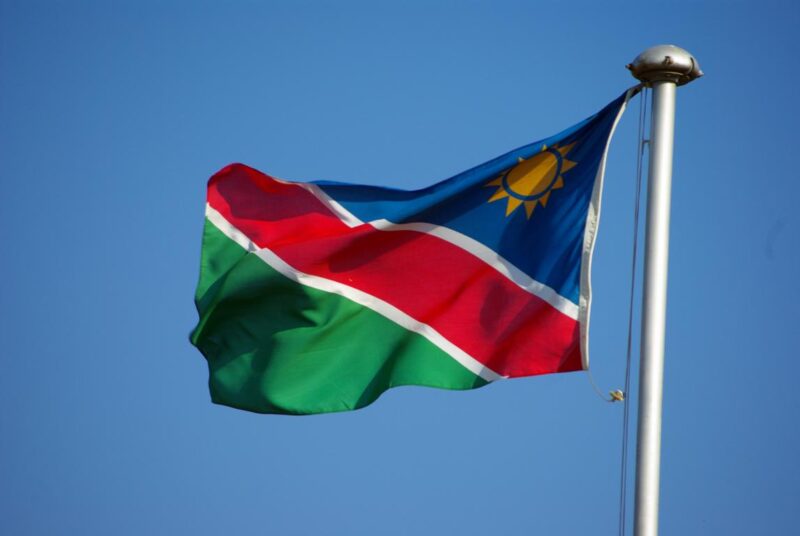Protesters campaigning against sexual and gender-based violence are once again making headlines in Namibia. The protesters have flooded business districts on several occasions, even shutting down the capital city of Windhoek earlier in October. The response has not always been peaceful, as many young demonstrators found themselves facing rubber bullets and widespread detainment.
One of these activists, Bertha Tobias, confidently claimed that this movement, which she calls the “Shut it Down Campaign” will continue if the Namibian Government does not meet their demands. These include the declaration of a state of emergency, a definitive timeline on related policy actions, and the Namibian gender equality Minister’s replacement.
The Government has responded to the protests, promising to tackle sexual and gender-based violence. The President of Namibia, Hage Geingob, took to Twitter to say, “Gender-based violence is something we have to address collectively as a nation. I am with you.” Despite his attempt at a uniting message, the activists call for more than just talk, demanding tangible action on this pertinent issue.
The demonstrations emerged with vigour in early October following the discovery of a body outside of Walvis Bay. This was believed to be 22-year-old Shannon Wasserfall, who had been missing since April of this year. Wasserfall’s disturbing death created widespread outrage in the country and, less than two days later, hundreds of protesters took to the streets. On October 13th, the government released a statement outlining that “this situation cannot be allowed to continue,” promising to implement associated measures such as establishing a sexual offenders register. The activists criticized this reaction, claiming that it was insufficient and nonconsequential.
So why are the protests continuing? One demonstrator cited a lack of real action, adding that “…we just want to be able to go out of our house after 6 pm and feel safe.” Ndapwa Alweendo, from the non-profit organization Sister Namibia told CNN that “this is a sign from our younger generation that they are not satisfied with the usual political response.” The protesters deem the current situation a crisis and one that affects more than just women. Ndiilo Nthengwe, a leading activist, outlines that more people need to know “…that women are [routinely] subjected and subjugated to the most heinous forms of treatment, erasing their autonomy and rendering them second-class [citizens] in the country.” This crisis is likely only exasperated by the lockdown and social isolation intended to slow the spread of COVID-19. The pandemic’s negative effect on the frequency and severity of domestic violence is well documented, as some individuals adhering to the protocol have been forced to self-isolate with their abusers.
Sexual and gender-based violence is far too prevalent in Namibia. Of particular concern are intimate partner violence, femicide, and sexual assault. Hendrick Olivier, from Namibia’s gender-based violence protection unit, outlines that “Last year [the] police handled at least 200 cases of domestic violence each month.” Considering that survivors do not report the vast majority of domestic violence, this startling number only makes up a fraction of the picture. Back in 2015, the UN Committee on the Elimination of Discrimination Against Women (CEDAW) expressed concern about the high prevalence of these same issues, lending support to the protesters’ criticism of continued inaction. Clearly, the current measures are not enough to protect the women of Namibia. A state where people are afraid to leave their home, afraid that their gender puts them at risk, and afraid that their lack of consent may not matter—is a state of emergency.
- Closed Minds And Closed Borders: Border Conflict In The Caribbean - March 14, 2021
- Mounting Fear In Taiwan - February 22, 2021
- Chinese Corporate Giants Caught Up In Racial Discrimination - January 24, 2021


